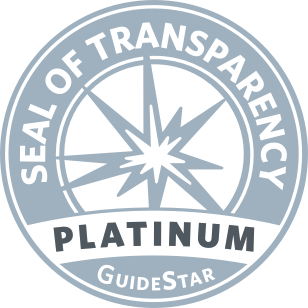#GivingTuesdayNow Featured Researcher Dr. Shannon Boye
Research News
A Lifelong Science Nerd is Winning the Fight Against Blindness
Shannon Boye, PhD, University of Florida, is at the top of her game. She’s emerged as a renowned retinal researcher, making invaluable contributions to the advancement of treatments and cures including development of a gene therapy, now in a clinical trial, for Leber congenital amaurosis (LCA1, GUCY2D mutations). Her lab is also working toward a human study of a dual-vector system for delivering large genes into the retina — genes that don’t fit into most viral gene delivery systems used in human studies. While her dual-vector efforts are for MYO7A, the gene associated with Usher syndrome type 1B, the approach shows promise for delivering other large genes such as ABCA4 (Stargardt disease) and USH2A (Usher syndrome and non-syndromic retinitis pigmentosa).

Dr. Shannon Boye in her laboratory at the University of Florida.
But like the career paths of most researchers, Shannon’s journey in the science field has been lifelong and marked by a variety achievements, setbacks, and unexpected epiphanies.
“Throughout my life, I’ve always gravitated towards science and art. But it wasn’t until AP biology class in high school with Mrs. Cindy Richards that I fully embraced my inner science nerd,” says Shannon. “I went to an all-girls Catholic school, and we didn’t have super fancy lab equipment, but Mrs. Richards always made it interesting and exciting. My favorite lesson ever was given during OJ Simpson’s murder trial. We learned about DNA fingerprinting and how biological evidence from a crime scene could be linked to a suspect. I remember looking at the bands on the gel thinking, ‘he totally did it’.”
A marine biology fanatic, Shannon chose the field as her college major. “The coolest part of the program” for her was quantifying juvenile fish populations on tropical coral reefs at the University of Hawaii. In between her junior and senior years, she was accepted into the Research Experience for Undergraduates (REU) program at the Whitney Marine Lab, an offshoot of the University of Florida (UF).
“I spent my summer at REU dissecting mosquito guts, of all things. My mentor, Dr. Paul Linser, was super fun and engaging,” recalls Shannon. “While he wasn’t writing grants or playing guitar, he was pushing me to apply to graduate school. After a visit to UF’s main campus that summer, I was sold. And the rest is history.”
As a neuroscience graduate student at UF, she didn’t realize it at the time, but she was in a gene therapy mecca. “The scientists who had made some of the seminal discoveries in the field were right down the hall. Some of the very first clinical trials using adeno-associated viruses or AAVs to address inherited disease were taking place in our hospital.”
The road ahead for Shannon had formidable obstacles, especially given she was a young woman starting her career at the same institute she’d been a student, in a male-dominated field. She recalls, “I crossed paths with professors who said I could not do it, who told me I ‘wasn’t too big to fail’ after I got a grant, and who took credit for my ideas. In the beginning, this led to tears. But, I am grateful for those moments because they thickened my skin. At 40 years old, I now recognize this type of aggression means I’m doing something right. It’s actually empowering.”
With her own lab now, Shannon serves as the mentor for several young students, guiding them through the tough moments. “Adversity comes in a variety of forms. Setbacks in research are the norm. Now, I have to coach my students through those tears,” she says.
Shannon is especially fond of a quote on adversity from Winston Churchill who said, “Success is not final, failure is not fatal, it is the courage to continue that counts.”
In addition to running her own lab, Shannon is ever-present as a speaker at Foundation events. She has a special talent for communicating research in a way that non-scientists can understand. But she also takes part in these activities as a way of paying her success forward to the Foundation and its constituents.
“The Foundation has been instrumental in launching my career and funding much of my research, including my LCA1-GUCY2D and dual-vector projects,” she says. “The support has helped us get the LCA1-GUCY2D gene therapy into a clinical trial at the University of Pennsylvania. And, we are now funded by the Foundation for the studies to advance a dual-vector gene therapy for Usher 1B (MYO7A) into a human study.”
Shannon also says that her success wouldn’t have been possible without her husband, Sanford Boye. “I consider him my secret weapon and he considers me his, which is why I think we work so well together. Science is a team sport, and our partnership is a crucial part of the machine. He also baits my hooks when we go fishing, so he’s a keeper!”




